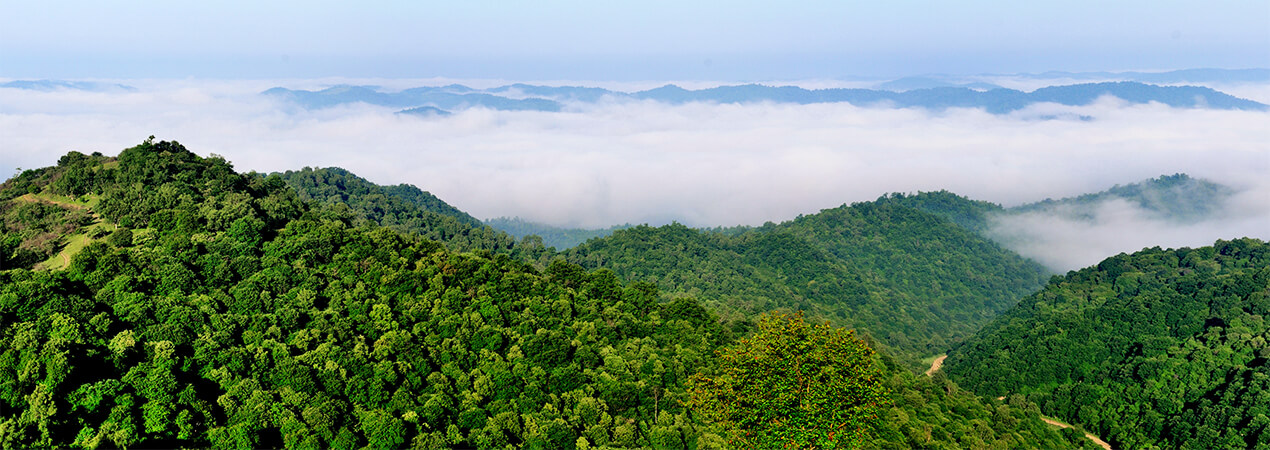Zhongnan Mountain

Zhongnan Mountain is famously referred to in the Chinese couplet:
“May your good fortune be as bountiful as the waters of the East China Sea,
and may your longevity rival that of the ageless pine on Zhongnan Mountain”.
There are many scenic spots here, including Mount South Wutai, Mount Cuihua, and Louguantai, to mention a few.
Zhongnan Mountain draws many followers of the Quanzen Sect of Taoism, and is also captivating for Kung Fu enthusiasts, especially readers of Jin Yong’s Kung Fu novels.
- Chinese Name: 终南山 Zhōng Nán Shān
- Duration: One-day trip
- Entrance Fee: 20 yuan
- Best time to visit: From March to November
- Address: South of Chang’an County, Xi’an City
Attractions in Zhongnan Mountain:
 Louguantai
Louguantai Louguantai
The best known attraction in Zhongnan Mountain is Louguantai, the place where Lao Tseu wrote Tao Te Ching and discussed Taoist scriptures with his disciple Yinxi, commander of Hangu Pass. Louguantai features Taoist remains, such as Lao Tseu’s Preaching Site and Zongsheng Palace.
Mount Cuihua
Legend has it that Mount Cuihua (formerly known as Mount Taiyi) is the place where Taiyi Zhenren (a famous figure in Taoist Theory) tried to make ‘pills of immortality’ and cultivate vital energy.
Landslide landscapes, including precipices, huge stones, caves, and landslide dams, dominate here. The scale of the landslide landscape in Mount Cuihua ranks first in China and third worldwide, with the largest single stone collapsed on Earth being found here.
The South Mount Wutai
 Mount Cuihua
Mount Cuihua As one of the holy lands of Buddhism in China, South Mount Wutai boasts numerous Buddhist relics and earns its name for the existence of five mountain peaks, Mount Qingliang, Mount Manjuist, Mount Sheshen, Mount Lingying and Mount Avalokitesvara, and for its location in the south of Mount Wutai (Mount Yaowang) of Yao County.
Hermits in Zhongnan Mountain
Over 5,000 hermits live in shacks or caves in Zhongnan Mountain. They do not receive strangers nor use cell phones, living life just as people did 1,000 years ago. They use secret signals when knocking at one another’s doors.
Drop us a line and we'll connect you with the top China expert in no time!